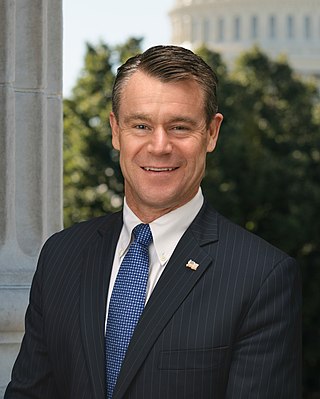
Lloyd James Austin III is a retired United States Army four-star general who has served as the 28th and current United States secretary of defense since January 22, 2021.

Major non-NATO ally (MNNA) is a designation given by the United States government to countries that have strategic working relationships with the U.S. Armed Forces while not being members of the North Atlantic Treaty Organization (NATO). While the status does not automatically constitute a mutual defense pact with the United States, it does confer a variety of military and financial advantages that are otherwise unobtainable by non-NATO countries. There are currently 19 major non-NATO allies across four continents: 11 in Asia, 3 in Africa, 3 in South America, and 2 in Oceania.

Joe Biden, President of the United States, served as Vice President from 2009 to 2017 and in the United States Senate from 1973 until 2009. A member of the Democratic Party, he made his second presidential run in 2008, later being announced as Democratic presidential nominee Barack Obama's running mate in 2008. He was elected vice president in 2008 and re-elected in 2012. In April 2019, Biden announced his 2020 presidential campaign. He became the presumptive Democratic nominee in April 2020, was formally nominated by the Democratic Party in August 2020, and defeated Republican incumbent Donald Trump in the November 2020 election.

After the United States established diplomatic relations with the People's Republic of China (PRC) in 1979 and recognized Beijing as the only legal government of China, Taiwan–United States relations became unofficial and informal following terms of the Taiwan Relations Act (TRA), which allows the United States to have relations with the Taiwanese people and their government, whose name is not specified. U.S.–Taiwan relations were further informally grounded in the "Six Assurances" in response to the third communiqué on the establishment of US–PRC relations. The Taiwan Travel Act, passed by the U.S. Congress on March 16, 2018, allows high-level U.S. officials to visit Taiwan and vice versa. Both sides have since signed a consular agreement formalizing their existent consular relations on September 13, 2019. The US government removed self-imposed restrictions on executive branch contacts with Taiwan on January 9, 2021.

The United States officially recognized the independence of Ukraine on December 25, 1991. The United States upgraded its consulate in the capital, Kyiv, to embassy status on January 21, 1992. In 2002, relations between the United States and Ukraine deteriorated after one of the recordings made during the Cassette Scandal revealed an alleged transfer of a sophisticated Ukrainian defense system to Saddam Hussein's Iraq.

Todd Christopher Young is an American attorney and politician serving as the senior United States senator from Indiana, a seat he has held since 2017. A member of the Republican Party, Young previously served as the U.S. representative for Indiana's 9th congressional district. He was elected to the United States Senate in the November 8, 2016, general election, succeeding retiring Republican Dan Coats. From 2019 to 2021, he served as the chair of the National Republican Senatorial Committee. Young was reelected in 2022.

Donald John Bacon is an American politician and retired military officer serving as the U.S. representative for Nebraska's 2nd congressional district since 2017. Before holding public office, he was a United States Air Force officer, retiring as brigadier general with stints as wing commander at Ramstein Air Base, Germany and Offutt Air Force Base in Omaha, Nebraska, prior to his retirement from the military in 2014. His political constituency now includes all of Omaha and the areas surrounding Offutt.

James Michael Johnson is an American lawyer and politician serving as the 56th speaker of the United States House of Representatives since October 25, 2023. A member of the Republican Party, he is in his fourth House term, having represented Louisiana's 4th congressional district since 2017.

Joshua S. Gottheimer is an American attorney, writer, and public policy adviser who has served as the U.S. representative for New Jersey's 5th congressional district since 2017. The district stretches along the northern border of the state from New York City's densely populated metropolitan suburbs in Bergen County northwest through exurban and rural territory in northern Passaic and Sussex Counties.

The 118th United States Congress is the current meeting of the legislative branch of the United States federal government, composed of the United States Senate and the United States House of Representatives. It convened in Washington, D.C., on January 3, 2023, and will end on January 3, 2025, during the third and fourth years of President Joe Biden's term in office.

Paycheck Protection Program and Health Care Enhancement Act is a $484 billion law that increases funding to the Paycheck Protection Program and also provide more funding for hospitals and testing for COVID-19.

Joe Biden's tenure as the 46th president of the United States began with his inauguration on January 20, 2021. Biden, a Democrat from Delaware who previously served as vice president for two terms under President Barack Obama, took office following his victory in the 2020 presidential election over Republican incumbent president Donald Trump. Upon his inauguration, he became the oldest president in American history, breaking the record set by Trump. Biden entered office amid the COVID-19 pandemic, an economic crisis, and increased political polarization.

Ernest Anthony Gonzales II is an American politician and United States Navy veteran who has served as the U.S. representative for Texas's 23rd congressional district in the United States House of Representatives since 2021. He is a member of the Republican Party.

The Consolidated Appropriations Act, 2021 is a $2.3 trillion spending bill that combines $900 billion in stimulus relief for the COVID-19 pandemic in the United States with a $1.4 trillion omnibus spending bill for the 2021 federal fiscal year and prevents a government shutdown. The bill is one of the largest spending measures ever enacted, surpassing the $2.2 trillion CARES Act, enacted in March 2020. The legislation is the first bill to address the pandemic since April 2020. According to the Senate Historical Office, at 5,593 pages, the legislation is the longest bill ever passed by Congress.
The foreign policy of the Joe Biden administration emphasizes the repair of the United States' alliances, which Biden argues were damaged during the Trump administration. The administration's goal is to restore the United States to a "position of trusted leadership" among global democracies in order to address challenges posed by Russia and China. Both Biden and his Secretary of Defense Lloyd Austin have repeatedly emphasized that no other world power should be able to surpass the United States, either militarily or economically. Biden's foreign policy has been described as having ideological underpinnings in mid-twentieth century liberal internationalism, American exceptionalism, and pragmatism.

The United States Innovation and Competition Act of 2021 (USICA) (S. 1260), formerly known as the Endless Frontier Act, was United States legislation sponsored by Senators Chuck Schumer (D-NY) and Todd Young (R-IN) authorizing $110 billion for basic and advanced technology research over a five-year period. Investment in basic and advanced research, commercialization, and education and training programs in artificial intelligence, semiconductors, quantum computing, advanced communications, biotechnology and advanced energy, amounts to $100 billion. Over $10 billion was authorized for appropriation to designate ten regional technology hubs and create a supply chain crisis-response program. The act is aimed at competing with China and to respond to US fears of an AI Cold War.

Consolidated Appropriations Act, 2022 is a $1.5 trillion omnibus spending bill. The bill was passed by Congress on March 14, 2022. The bill was signed into law by President Joe Biden on March 15, 2022.

The CHIPS and Science Act is a U.S. federal statute enacted by the 117th United States Congress and signed into law by President Joe Biden on August 9, 2022. The act authorizes roughly $280 billion in new funding to boost domestic research and manufacturing of semiconductors in the United States, for which it appropriates $52.7 billion. The act includes $39 billion in subsidies for chip manufacturing on U.S. soil along with 25% investment tax credits for costs of manufacturing equipment, and $13 billion for semiconductor research and workforce training, with the dual aim of strengthening American supply chain resilience and countering China. It also invests $174 billion in the overall ecosystem of public sector research in science and technology, advancing human spaceflight, quantum computing, materials science, biotechnology, experimental physics, research security, social and ethical considerations, workforce development and diversity, equity, and inclusion efforts at NASA, the NSF, the DOE, the EDA, and NIST.
The United States federal budget for fiscal year 2024 runs from October 1, 2023, to September 30, 2024.

The Protecting Americans from Foreign Adversary Controlled Applications Act (PAFACA) is an act of Congress that was signed into law on April 24, 2024, as part of the National Security Act, 2024. It would ban social networking apps within 270 to 360 days if they are determined by the president of the United States and relevant provisions to be a "foreign adversary controlled application". The act explicitly applies to Beijing-based ByteDance Ltd. and its subsidiaries—including TikTok—without the need for additional determination. It ceases to be applicable if an app is sold and no longer considered by the president to be controlled by a foreign adversary of the United States.













